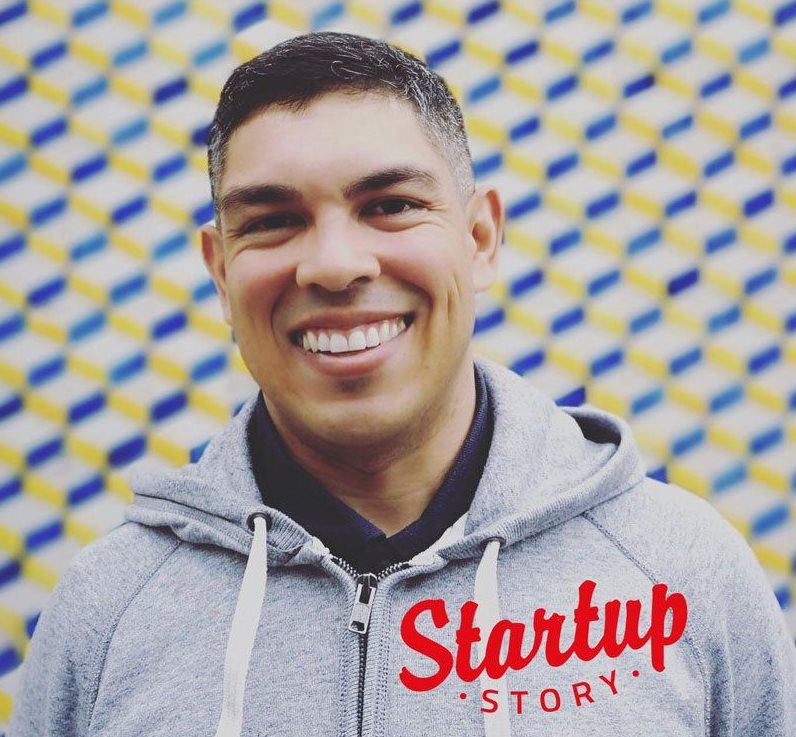Finvex is a cloud-based platform that connects corporate clients, their growing SME suppliers and financial agents, making it easier for SMEs to get easy, affordable and fast payment of accounts receivable.

Rezaan Daniels, CEO and co-founder of Finvex
Rezaan Daniels, CEO and co-founder of Finvex, tells us more about the platform that aims to bridge the gap between SMEs and the corporate world...
Can you tell us a bit about Finvex?
We connect corporate clients, their growing SME suppliers and financial agents on a shared digital cloud-based platform. The platform allows SMEs to get easy, affordable and fast payment of accounts receivable, while the corporate keeps its existing payment terms and improves the sustainability of its own supply chain.
By integrating our enterprise software directly into the accounting package of the corporate, we are able to automate the entire process, reducing the risk of fraud and errors, and achieving transparency between all parties.
When, how and why did you get started?
We started Finvex this year (2019) to bridge the gap between the SME and the corporate worlds, addressing the inefficient capital flow that is hindering the ability of SMEs to grow.
Corporate payment terms of 60, 90, and sometimes more than 120 days are very common in South Africa, even though there is a government mandate to pay SMEs within 30 days. With my past work experience at Endeavor South Africa, managing a portfolio of SME entrepreneurs, and my corporate experience as a commercial director for a JSE listed company has given me first-hand insight into the negative impact of inefficient capital flow on growing SME businesses.
It became clear to me that finding an innovative fintech solution that provides SMEs with affordable access to finance is critical for SMEs, as well as the country's future economic growth and creation of employment.
What is the core function of Finvex.tech?
At our core, we are challenging incumbent banks’ struggle to finance SMEs due to a one-size-fits-all approach that applies traditional lending methods that rely on collateral and conventional financing scorecards.
The SME credit gap in South Africa is estimated to be as large as R346bn, with only 13% of registered SME business in South Africa able to access funding. We believe our disruptive supply chain finance (SCF) business model can unlock working capital for SMEs by leveraging the credit rating of the corporate client.
External financial agents join the platform to finance SMEs because of our attractive corporate client base, lower repayment uncertainty, and higher-grade credit.
What are some of the obstacles you've had to overcome since starting out?
One of our biggest struggles is to build trust with large corporate clients as a fintech startup. We do not yet have the track record or brand recognition to rely on. Leveraging our own professional CV’s and personal networks has been critical for us to win over the trust of often wary corporate clients.
Tackling our corporate client’s preconceived assumptions about what supply chain financing is, we have had to spend a lot of time educating the market.
By creating clear lines of communication, we can highlight the pain points that both corporates clients and their SME suppliers face that often go unnoticed within a large organisation.
What advice would you give to other aspiring entrepreneurs?
I never turn down a LinkedIn invite, Skype/appear.in/zoom call request, or coffee catch-up! Building a strong network allows you to practice pitching, to gain critical insight and listen to your potential customer’s needs.
Make sure you truly understand your clients' needs and their current pain points. By actively listening and asking questions, when you are meeting with your network, will allow you to continuously iterate and improve your business. You can use this information to mould and adapt your pitch/product, providing your client with a solution they cannot say no to - helping you win more of those ever-important sales conversions.
Miguel Da Silva 22 Aug 2019 What has been your proudest achievement thus far?
Ninety percent of new jobs are projected to be created by the SME sector by 2030. However, SMEs are often marginalised and the critical contribution that they play in the economy is ignored.
We are proud that we have created and brought to market a platform that gives SMEs alternative financing options. Our lowest value invoice so far is R18 and our highest value invoice processed is R750k.
Spotlighting SMEs that are often stuck in the “missing middle” (too big for micro-financing, yet too small for commercial lending) is what we are most proud of to date.
What does the future of entrepreneurship look like to you?
I believe technology will continue to be the biggest driving force of rapid change in the global economy. Entrepreneurs have to start by identifying problems in the marketplace and use new technology to find solutions, instead of identifying a new technology first and then going out to find a problem to solve.
The likes of blockchain, artificial intelligence and other innovative fintech solutions have streamlined the efficiency with which business can now operate. Startups are often free of the bureaucracy and limitations of larger corporates to find key problems to focus on.
I think the future of entrepreneurship is bright as startups continue to disrupt the status quo by solving relevant customer-focused problems with innovative technology solutions.
What do you think is the importance of startup accelerator/incubator programmes?
Accelerators allow you to learn from others' mistakes - and the best education is always a free education! You can do it without these programs, but as a startup, why would you not accept the support to scale your business at a pace that you could not achieve alone.
Again, any opportunity to expand your network and getting effective feedback/knowledge from mentors or customers cannot be overstated. It is critical to do your homework to pick the right professional business consultation or accelerator that has access to the resources/network that can mean the difference between your business thriving, or joining the group of over half of SMEs that go out of business before their third operating year.
For startups, accelerators provide you with an encouraging environment that helps you thrive!
What would you like to see changed in the South African/African startup landscape?
The biggest challenge for South African startups continues to remain the chronic lack of access to affordable financing. Both the public and private sector needs to find innovative ways to better deploy the available capital that can support the growth and scaling of South African entrepreneurs.
Startups need to be able to access the appropriate financing mechanisms throughout every stage of growth – only with these funding mechanisms in place at each stage of development will it lead to the creation of more startups, more talent and new jobs.
What do you believe are the traits an entrepreneur needs in order to succeed?
I believe what sets successful entrepreneurs apart is their ability to persevere through the hard times. Business is not for the faint-hearted and challenges will always arise. This is a given.
What is important, is to remain focused on your vision and persevere in spite of the challenges
. It will require risk taking and often times failure - both of which should not scare you, as these are necessary steps along the path to achieving your business goals and ambitions. Reframe these challenges as opportunities in which you can capitalise on along your pathway to success.
Tell us about your biggest struggles as an entrepreneur, as well as some major highlights.
Your best intentions to follow strict schedules, achieve strategic objectives and financial projections will likely not happen as planned. Dealing with the volatility and unknown that comes with being an entrepreneur is a struggle. Long-term plans remain in flux as opportunities present themselves and dictate new directions that the business will lead you.
On the flip side of the same coin, the biggest advantage of being an entrepreneur has been the flexibility of my schedule - deciding where and when I work – I can go surfing on a Tuesday morning, but also know that I will be up figuring out lines of code at 3am if needed.
A major highlight, that I had not anticipated, was how many new skills and the constant learning journey that I would be taken on as we solve problems when they come up.
Why would you encourage someone to become an entrepreneur?
If you are frustrated by the status quo, unsatisfied with inequalities and issues you believe you could be impacting upon, I would strongly encourage you to take the risk on yourself and pursue your vision.
Constantly challenging yourself, and the sense of accomplishment that results from this is so rewarding!
 Where would you like to see Finvex in the next 5 years?
Where would you like to see Finvex in the next 5 years?Across sub-Saharan Africa, there is a $331 billion requirement for SME funding. We believe our model is an innovative mechanism for SMEs to access finance to bridge this funding gap.
In South Africa, we will leverage the B-BBEE codes to provide a compelling model for enterprise supplier development (ESD) to solve corporate clients compliance needs.
As we expand into Africa we will offer an end-to-end solution that ensures transparency, mitigation of fraud risk, and payment solutions for multinational corporations as they expand their local operations across the continent.


































 Where would you like to see Finvex in the next 5 years?
Where would you like to see Finvex in the next 5 years?






